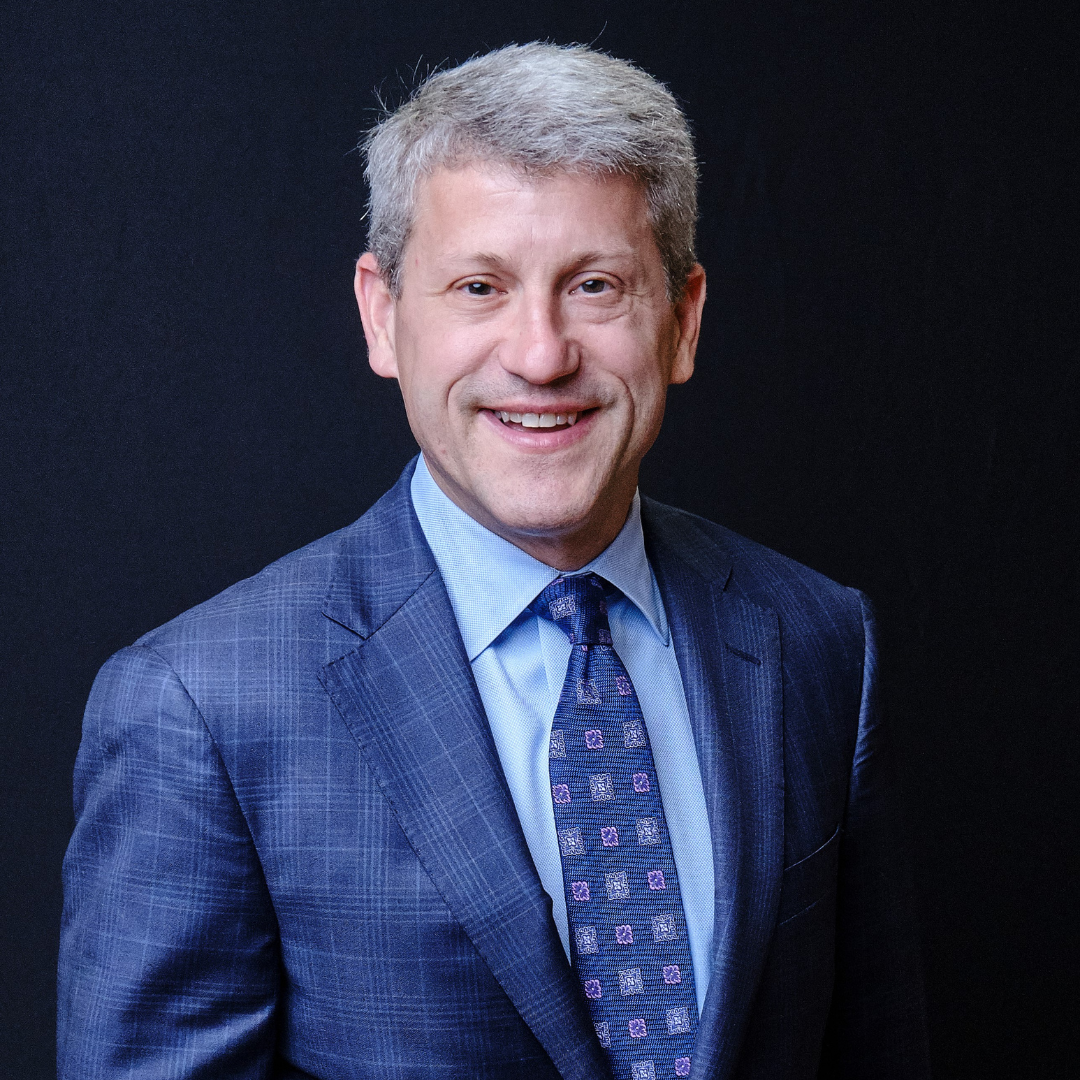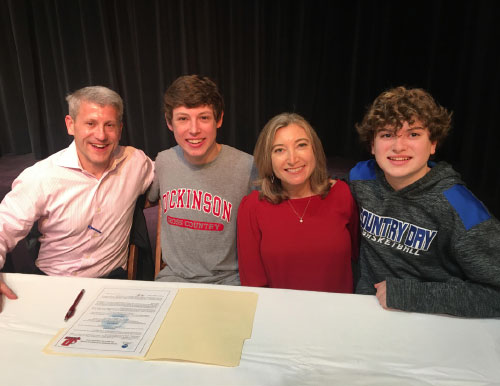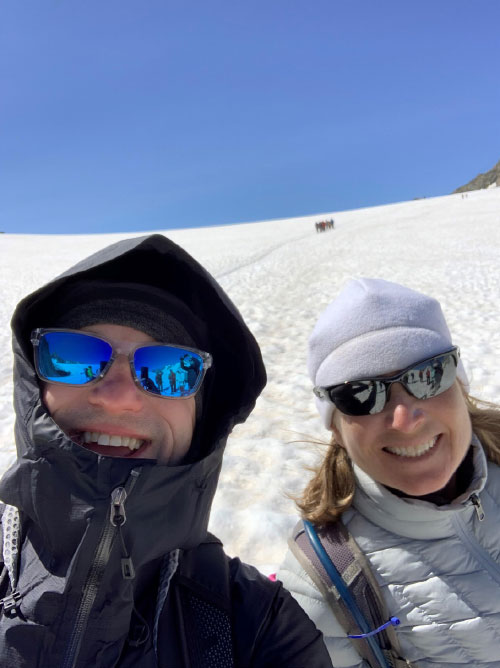Hurricane Katrina helped put life in perspective for Louisiana lawyer
Articles
Attorney Spotlight
View more from News & Articles or Primerus Weekly
By Brian Cox
It’s been 17 years since Hurricane Katrina hit New Orleans with unprecedented catastrophic and deadly force, causing billions of dollars in damage to infrastructure and wreaking environmental havoc on coastal areas that in some cases have yet to recover. The hurricane’s impact went far beyond transforming the physical landscape of the Gulf Coast, however.
The historic natural disaster was a seminal moment in the life of attorney Brian Katz and in his law firm.
Except for his years away at college at the University of Alabama, Katz has lived all his life in New Orleans, where he has century-old roots. His family arrived in New Orleans from Eastern Europe and Russia in the early 1900s. His maternal great-grandfather, Harry Offner, started Harry’s Hardware in 1910, which became a landmark business and only last year closed its doors for good after being in the family for 111 years. Katz’s two sons attended the same high school he did – Metairie Park Country Day High School.
“People always ask about your school in New Orleans,” says Katz. “When they ask where you went to school, they don’t mean college – they mean high school.”

Katz’s legal connections in the city also run back decades. Immediately after graduating from Tulane University School of Law in 1995, Katz joined Herman Herman & Katz, LLC, where his father Morton was a partner along with the attorneys Katz called his “fake uncles.” Founded in 1942 by brothers David and Harry Herman, the personal injury law firm has played a role in some of the region’s most significant cases, including representing Louisiana in the state’s lawsuit against the tobacco industry and helping lead the fight against the petrochemical company BP following the Deepwater Horizon oil spill in 2010.
But it was Katrina that would mark the beginning of a transformation of how the law firm is run and that would reaffirm and deepen Katz’s support of and appreciation for the Jewish community of New Orleans.
When the Category 5 hurricane hit, its tremendous storm surge put an estimated 80 percent of New Orleans under flood waters, including Katz’s home, which was wiped out by 11 feet of water that reached the second floor.
“We lost everything,” says Katz.
He and his wife, Lisa, had to quickly pack up their two boys – Ethan, who was 4, and Logan, who was only 4 months — and evacuate to Atlanta for five months. Katz says he will never forget how the family was embraced with open arms by the Atlanta Jewish community, which welcomed Ethan into the Synagogue’s preschool program for free, provided the Katz family with necessities -- such as a crib and toys -- and a free membership to the Jewish Community Center.
For years before Katrina, Katz had been active in helping to raise funds for Jewish organizations in and around New Orleans. Now he found himself on the receiving end and he says the sense of connection he felt is indescribable.

“I went from the guy who was raising money for all those people to the guy who now was getting it,” he says. “I always saw the importance of that, but it propelled me to stay involved and try to do for others what people did for me.”
It is a resolution he has reinforced through countless hours of service and leadership.
Over the years, he has received numerous awards for his civic work. He is a past president of the Jewish Community Center, where as a child he spent his days swimming and playing basketball. He is also a former co-chair for the Jewish Federations of North America National Young Leadership. He is currently the board chair of the Jewish Federation of Greater New Orleans, which raises money for a wide range of Jewish organizations, such as Jewish Family Services and Jewish Community Center.
“We’ve got to find a way to fund the programming in the community that we need,” he says. “That’s what the Jewish Federation of Greater New Orleans’ role is. I feel it’s a super important role because no one else is going to do it for us so we have to do it for ourselves.”
The law firm, too, had to evacuate in the wake of Katrina. The firm packed up all its paper files in two 18-wheelers and delivered them to wherever the attorneys and their families had landed – Houston, Florida, Atlanta. Everyone was back up and running inside of a month. There was a lot of work to be done.
“As bad as Hurricane Katrina was for life, it was good for the firm because we just helped people and handled claims for five years or so,” says Katz. “Financially, it worked out well for us.”
The experience also brought a change in the firm’s leadership as Katz and Stephen Herman, the grandson of co-founding attorney Harry Herman, were named partners in response to some of the senior attorneys deciding to ease their caseloads in the years following the hurricane. The firm currently has six partners, two full-time associates, and six former partners who are now of counsel.
“Katrina got us rethinking how we wanted to operate, too,” says Katz. “It started us to go to paperless. We now have only one server we need to take with us if we have to evacuate for a hurricane. We can now work anywhere.”
The firm’s response to Katrina has served to prepare it to become leaner and more efficient in recent years as law firms that invest heavily in television advertising soak up a majority of personal injury cases.
“I think it’s tougher and tougher to do what I do and represent individuals when you’ve got market saturation from the advertisers,” says Katz, who is concerned that small to mid-size litigation firms may find it impossible to exist one day. “It’s kind of like my mom’s hardware store. It gets swallowed up and eaten up by the Lowe’s and Home Depots of the world and it just can’t compete.”
An instinct for survival is one of the major motivations behind the firm’s membership in Primerus.
“It’s a good group of smaller, quality law firms and that’s how we look at ourselves,” says Katz. “The small to mid-size firms need to all work together to help each other in a world where there’s the big advertisers on the plaintiff side and there’s the giant firms on the defense side. We have a commonality of interest in trying to help each other.”
The survival of a boutique firm hinges on its ability to find a specialized market where it can thrive, says Katz.
“The smaller firms like ours have to find a niche and be good at it and hope that area of practice sticks around.”
Technology allows the firm’s attorneys to be more efficient than ever before. As experienced attorneys find it easier to manage their caseloads independently, support staff becomes less critical.

“I can have 50 cases on my own and work them without an associate,” says Katz. “We can organize things much more easily so you don’t need as much support from paralegals. You don’t need the giant firm with three associates working for you in our model.”
The firm, which has always tried to be flexible, currently has a policy for most staff that allows them to work from home one or two days a week.
“We needed to adapt to that model in order to keep the talent we wanted to keep,” says Katz. “I think COVID made it much more apparent that we could do it. It’s worked out well for us. It’s made employees who have younger kids or longer commutes happy.”
A huge Alabama Crimson Tide football fan, Katz studied radio and television broadcasting in college with the thought of perhaps becoming a sports journalist. Until it became clear that he wasn’t going to be Brent Musberger or Jim Nance right out of the gate.
“When I realized I was going to have to start my career as a high school football sideline reporter somewhere and wait tables on the side, I decided that maybe this wasn’t the career I wanted to work that hard at,” he says, “and so I went to law school.”
While he wasn’t certain what type of law he wanted to practice after law school, he discovered that he is well suited to be a trial lawyer.
“I am not cut out for sitting in the office or putting deals together or doing the same thing every day,” he says. “I think I’m much more cut out to be a trial lawyer.”
Joining Herman Herman & Katz, LLC, seemed like a natural fit, he says. His father served as a mentor, but he was also thrown quickly into the fire to prove himself. He recalls trying two cases with his father, both of which resulted in the judge asking Morton Katz to quit pestering his son with notes of advice.
“I was asking questions of witnesses and my father was passing me notes on yellow Post-its,” recalls Katz with a laugh. “It was just driving me nuts and distracting me. Finally, the judge said, ‘Older Mr. Katz, please sit down and stop bothering your son. He’s doing perfectly fine on his own.’ That was the last time I think we worked together.”
Katz believes his cheerful and affable disposition helps make him an effective trial attorney.
“Even when there’s a lot of anxiety and a lot of pressure, I try to have a smile on my face,” he says. “I think that helps me communicate with a jury and puts them at ease during the trial process, which is unfamiliar to them. Hopefully, I can communicate clearly to them to state my client’s position.”
He tries to be the same way with opposing counsel, saying he can count on one hand the number of lawyers he doesn’t get along with in the profession.
“I think having good relationships with other lawyers helps you get cases resolved, even when you have to try them,” he says. “I’ve always preferred to kill them with kindness.”